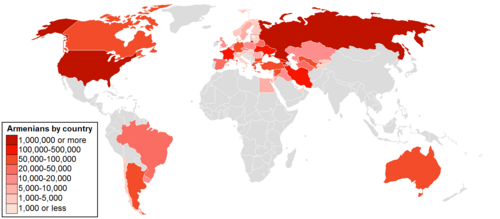Organisations
The country's largest Armenian organisation is the Auckland-based Armenian Society of New Zealand (ASNZ). It was founded in 1996 and is currently headed by Hermik Sookiassian. ASNZ defines its mission as follows: "To aid and facilitate the preservation of the Armenian identity amongst the Armenians of New Zealand, as well as be a central point of contact for anyone seeking to learn more about Armenia and Armenians." [3]
In 2018, a monument to the Armenian alphabet was carved in Armenia and shipped to New Zealand where it was installed by the Meadowood Community House in Unsworth Heights where ASNZ members hold regular meetings and cultural events. [4]
Saint Gregory the Illuminator Armenian Apostolic Church is an Auckland-based religious community without a permanent physical location. Occasional services are held in various Anglican church buildings when Armenian priests visit Auckland from Australia and elsewhere. [5]
A smaller group called the Armenian Association of Wellington exists in New Zealand's capital and third-largest city, Wellington. [6]
This page is based on this
Wikipedia article Text is available under the
CC BY-SA 4.0 license; additional terms may apply.
Images, videos and audio are available under their respective licenses.

